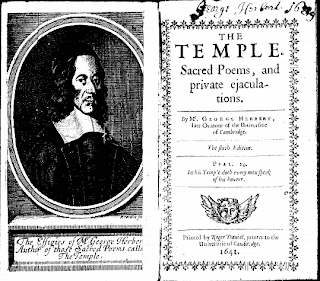My essay on the devotional mode in poetry, looking particularly at the 17th-century Metaphysical poets and at the contemporary poet Franz Wright, is now available online at Contemporary Poetry Review: http://www.cprw.com/the-poem-as-devotional-practice-luke-hankins-on-the-metaphysical-poets/
An excerpt:
Although it is, of course, impossible to know, based on the text of the poem alone, to what extent a poet did or did not have the conclusion of the poem in view during the act of composition, we can say this much, at least: Some religious poems (like Herbert’s “The Search”) dramatize a mental or spiritual struggle; other religious poems (like Donne’s “Holy Sonnet X”) do not purport to dramatize a current struggle, and instead explain or explicate a struggle that happened prior to the composition of the poem. In the latter case, the entire poem functions as a conclusion; even if there is some dramatization, as there is in Donne’s poem (a speaker personifying and addressing death), there is no uncertainty in the rhetoric since the conclusion is foreknown and stated or implied from the beginning. This kind of poem engages the reader the way a sermon or an essay might. On the other hand, the rhetoric of a poem that dramatizes a struggle in the literary “present,” as Herbert’s poem does, proceeds with uncertainty and thus engages the reader the way a play might. This effect is intensified to the extent that the reader senses that the poet’s composition of the poem proceeded in uncertainty—not only of the literary or formal outcome of the nascent poem, but also the spiritual outcome of engaging the poem’s idea.

No comments:
Post a Comment